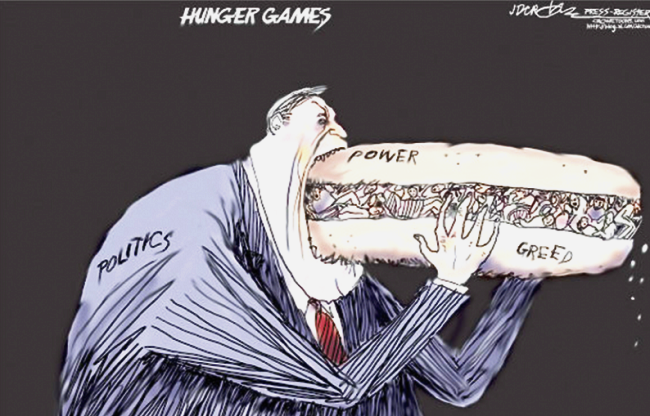
The nature of corruption
Professor Robert Klitgaard, a leading researcher on corruption, has observed that sometimes the campaign against corruption seems as futile as campaigning against the sun’s daily setting. As a Ghanaian, I am not only embarrassed by the incessant news of corruption in this country but also exhausted by it.
Advertisement
I have no doubt that many Ghanaians also feel like I do. There is a sense of helplessness, defeatism and despair which comes with fighting chronic corruption for years without success. Government after government has attempted to weed out this scourge in the public service but it never goes away (and the problem is all too prevalent in the private sector as well).
What is frightening now is that the overwhelming number of corruption cases in the news might make many people in Ghana (even the morally upright among us) inoculated against this vicious evil of corruption. Corruption tears apart integrity, the very adhesive that holds life in a society together. When principles evaporate and only opportunism reigns, when the shameless triumph and the abuser is admired then society is on the brink of collapse. Chuck Colson, the first member of the Nixon administration to be incarcerated in relation to the Watergate scandal, rightly noted that a society becomes vulnerable when the people who compose it lack character.
From the examination hall to the church pulpit, from the political campaign platform to boardroom deals and to romantic relationships, we are swiftly heading towards moral bankruptcy. At this rate, the future of this country looks gloomy at best. I am reminded of the observations about civilised society made by the British theologian John Stott: “Our promises are not enough; we need contracts. Putting doors on our buildings are not enough; we need to lock and bolt them. Making laws is not enough; we need the police to enforce the laws. While these innovations seem sophisticated and normal to us today, they are actually signs of our depravity for we cannot trust each other. We need protection from each other.”
Legislation can and does help but only to the extent of forcing compliance (and in Ghana even enforcement of the law seems to be plagued by corruption). Legislation can never produce love in the human heart. Yet it is love that causes attitudinal change. Love for God translates to love for man. This is why Jesus said that all the Jewish moral laws were premised on the foundational laws of love: Loving God with all of one’s heart, soul, mind and strength and loving one’s neighbour as oneself. The problem of corruption is not merely social; it is spiritual at the core. Something has gone desperately wrong in our hearts.
There is a strong perception in Ghana that one cannot be morally upright and be successful in business. This perception is not without basis. The values in our society have so deteriorated that maintaining high ethical standards in business is like shooting oneself in the foot. Business people are repeatedly brought to the point where they ask themselves: If everyone else is cheating the system, how can I be ethical and possibly succeed?
We all may have different aspirations in life ranging from wealth, fame, knowledge, popularity, etc. But like Dr L. Murphy Smith, a Professor of Accounting at Texas A&M University, has observed, if integrity is secondary to any of these aspirations, it will be sacrificed in situations where choices have to be made. And such situations abound in life.
Several business people in Ghana profess belief in God but in practical life they deny this belief. They want to be spiritual and unspiritual all at once.
Granted, some successful people do beautiful works of charity. But like someone has noted, some works of charity may be expressions of calculating hypocrisy or blind instinctive feeling. It is when such works are inspired by faith in and love for God that they really have spiritual force. To think that the content of an action is immaterial and that only its external character is of significance is to overlook all that is most important in man – his heart, conscience and convictions. It is the inner movements of our souls that determine the true value of our actions, which may be either godly or brilliant deceptions.
Our problem is not that we are bad people who need to become good. The problem is that we are spiritually disconnected from God, thus making our morals perverted. This is exactly what Jesus Christ talks about – that men need to be spiritually born anew. Until this happens, all the leadership conferences, motivational talks and legislations will at best treat the symptoms of corruption, leaving the cause – depravity in our hearts – intact.
Writer’s E-mail: [email protected]